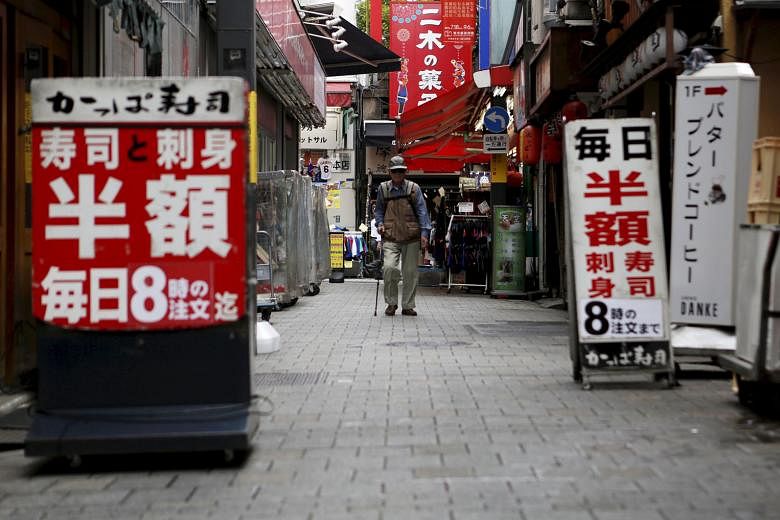TOKYO • Some Bank of Japan (BOJ) policymakers believe overseas economies continue to pose downside risks to Japan's economy and prices, according to minutes of its April policy meeting released yesterday.
At the April 27-28 meeting, the BOJ held off on expanding monetary stimulus even as global headwinds, a strong yen and soft consumption threatened to derail Japan's fragile economic recovery.
The central bank cut its inflation forecasts in a quarterly review of its projections, and once again pushed back by six months the timing for hitting its 2 per cent price target, saying it may not happen until March 2018 at the latest.
BOJ members said it should carefully examine risks from overseas economies in the future and ease monetary policy without hesitation if needed.
One central bank member said the decision to keep policy on hold should not be seen as a change in thinking on monetary policy, suggesting the member wished to avoid giving an impression the BOJ had become reluctant to ease.
But overall, BOJ members were sanguine despite lowering their consumer price forecasts, saying they could keep policy on hold because it would take time to see the benefits.
The BOJ could soon be facing extra challenges from slowing emerging markets, volatility caused by monetary policy in the United States as well as Britain's vote on European Union membership - especially if the "Leave" side prevails.
"The BOJ has suddenly changed its message," said senior economist Norio Miyagawa at Mizuho Securities .
"One month, they sound optimistic, but the next month, they ease policy. The BOJ is trying to preserve its limited options, but it will have to ease further if risk aversion in financial markets causes the yen to rise and damages inflation expectations," he said.
In the minutes, members said the downgrade to their consumer price forecast was mainly because of downward revisions of gross domestic product and slower gains in wages. However, most members remained confident that households and the corporate sector would continue to spend more, leading simultaneously to wage growth and higher consumer prices.
Most members agreed the BOJ could afford to adopt a wait-and-see stance because it would take time for its negative interest rates and debt purchasing programme to have an impact.
The BOJ also kept policy unchanged at a subsequent meeting last week, but it will face a more critical gathering late next month when it again reviews its growth and inflation projections.
REUTERS

